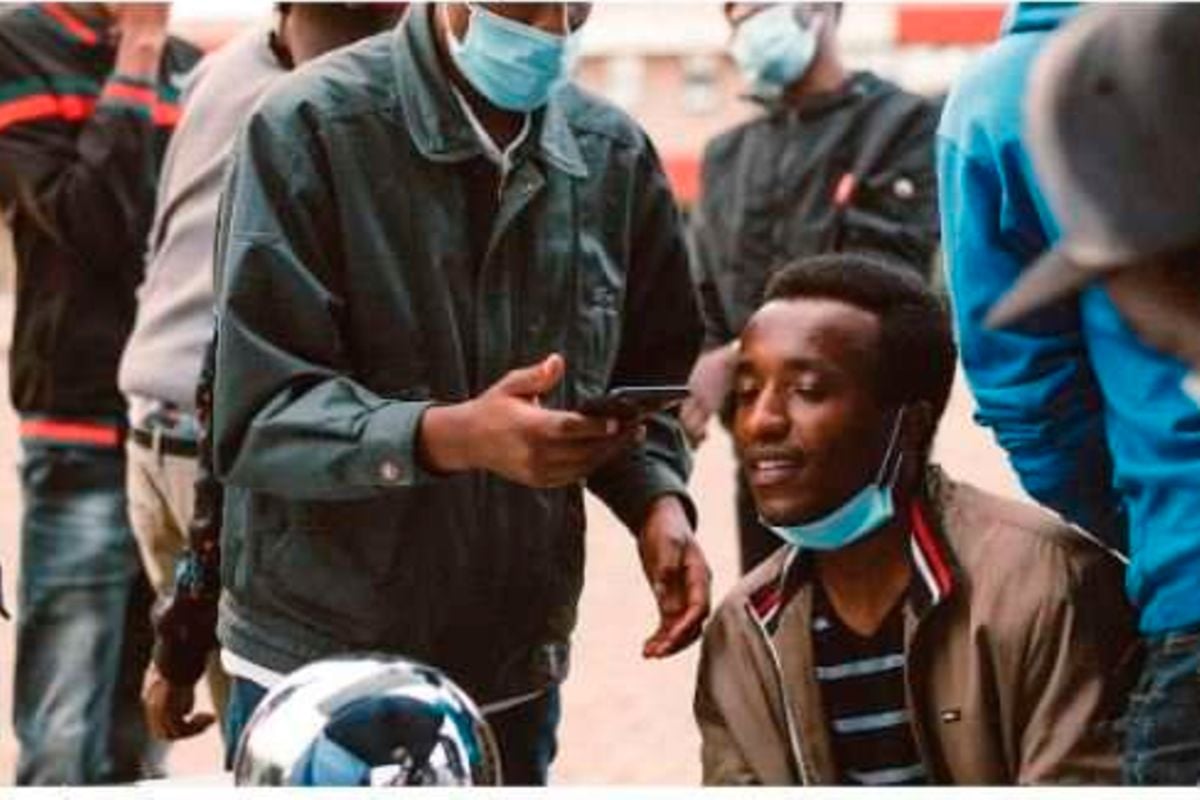The web has this week been awash with information of a brand new cryptocurrency that awards free tokens for scanning eyeballs to confirm one’s humanity, and Kenyans are going loopy about it.
Worldcoin, which launched on Monday, July 24, awards customers with free tokens, known as WLD, as soon as they confirm their humanity by scanning their eyeballs utilizing machines situated in specified locations throughout some 35 nations across the globe, Kenya being one in all them.
They’ll then switch these tokens to official crypto exchanges, like Binance, and use them to purchase different cryptocurrencies, which might then be cashed out by liquidity brokers on these platforms or offered to different customers, and there comes the free cash.
At their present worth, the primary free 25 WLD tokens would translate to about Sh7,786.
James Makau, a bodaboda rider from Ruaka, confirmed the Saturday Nation that he had earned Sh6,461 after signing up and scanning his iris. He used his free tokens to purchase USDT, one other cryptocurrency, which he then offered to get Kenya shillings.
On Friday, a whole bunch of Kenyans flocked no less than 13 Quickmart shops in Nairobi to scan their eyeball to have the ability to get the free tokens provided by the brand new platform. Quickmart shops are the place the Orbs – the distinctive eye scanning machines – are stationed in Kenya.
Because the Saturday Nation staff arrived at Quickmart Thome outlet alongside Northern by-pass, younger folks of their twenties and thirties have been patiently ready to be attended to .
“I used to be right here by 5am as a result of there was quite a lot of speak on TikTok and Instagram concerning the free cash Worldcoin is giving all those that obtain their App and subscribe, we’re ready for the iris scanner to reach in order that we will be sorted,” Brian Mwangi, a resident of Kiambu mentioned.
“Whenever you hear somebody is giving out ‘free’ cash simply with the intention to be part of their App, you don’t have anything to lose, I don’t thoughts the truth that all they’re asking for is to scan my iris,” mentioned Ms Virginia Ng’ang’a, who graduated from college final 12 months and is but to get a job.
Co-founded by Sam Altman, CEO of text-based synthetic intelligence platform ChatGPT’s developer OpenAI, Worldcoin says it needs to provide everybody on earth entry to the worldwide economic system, by giving them a verified digital identification, free cryptocurrency tokens and a crypto pockets.
Their whitepaper says the idea was to create a digital forex that will be extra inclusive and accessible to folks worldwide, no matter their socio-economic standing or entry to conventional banking techniques.
Its founders, Altman and Alex Blania, clarify that advances in synthetic intelligence (AI) have made it more and more tough to inform whether or not on-line exercise got here from actual people or AI, necessitating the “proof of personhood” by the retinal scans.
It verifies a person’s identification by scanning their iris to create private, safe identification codes, which is known as “World ID”. The codes are saved on a decentralised blockchain, and the corporate claims they can’t be duplicated or spoofed to create false identities or interact in fraud, in line with its privateness coverage assertion.
“The objective is easy: A worldwide monetary and identification community based mostly on proof of personhood,” Altman mentioned on Twitter.
“This feels particularly essential within the AI period. I’m hopeful Worldcoin can contribute to conversations about how we share entry, advantages, and governance of future AI techniques.”
Nothing to lose
However do those that “confirm” their identification with Worldcoin actually don’t have anything to lose as a lot of them imagine? Worldcoin and its founders themselves don’t know this but.
“The journey will likely be difficult and the result is unsure,” says an introduction assertion by Altman and Blania on their web site.
The Workplace of the Information Safety Commissioner (ODPC) yesterday cautioned Kenyans towards simply sharing their “delicate private information” earlier than they obtain correct data on how their information will likely be used.


